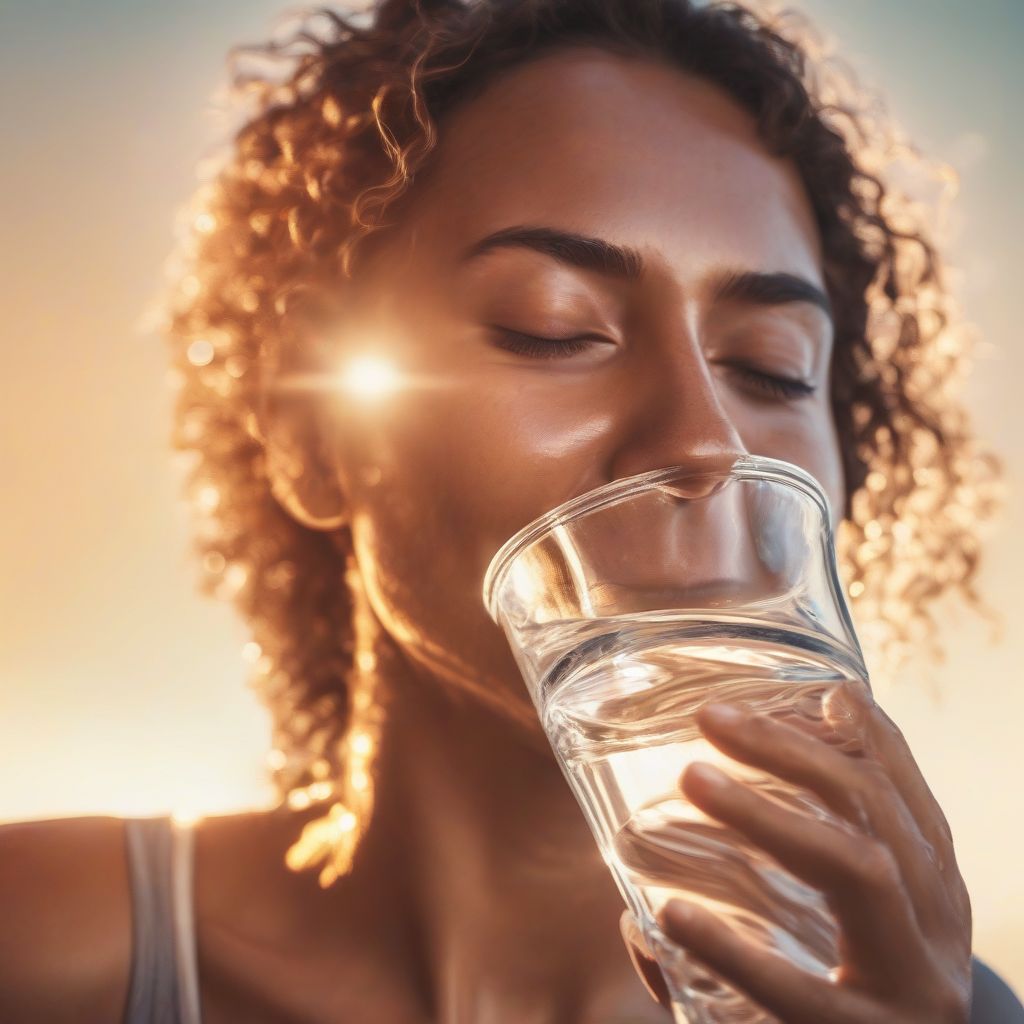Ever feel like your brain is in a fog or your body just won’t cooperate? Believe it or not, the answer to feeling your best might be simpler than you think: water. As a nutritionist and meal prep coach, I’ve seen firsthand the incredible impact proper hydration has on both physical and mental well-being. It’s not just about quenching your thirst; it’s about fueling your body and mind to function at their peak.
Why Hydration Matters: The Body in Balance
Our bodies are amazing machines, and like any well-oiled machine, they need the right fluids to run smoothly. Water is a vital nutrient involved in nearly every bodily function, from regulating temperature to transporting nutrients to lubricating joints.
The Physical Perks of H20
Think of water as your body’s internal transportation system. It carries essential nutrients to your cells and removes waste products, keeping everything running efficiently.
Here’s how proper hydration benefits your physical health:
- Boosts Energy Levels: Dehydration can lead to fatigue and sluggishness. Staying hydrated keeps your energy levels up throughout the day.
- Supports Physical Performance: Water is essential for muscle function and recovery. Proper hydration can improve your workouts and athletic performance.
- Aids in Weight Management: Drinking water can help you feel fuller for longer, potentially reducing calorie intake.
- Promotes Digestive Health: Water helps prevent constipation and keeps things moving smoothly through your digestive system.
- Regulates Body Temperature: Water helps your body maintain a consistent temperature, especially important during physical activity or hot weather.
A Clear Mind: The Mental Benefits of Hydration
The connection between hydration and mental health is powerful. Even mild dehydration can impact your mood, focus, and cognitive function.
Here’s how staying hydrated can benefit your mind:
- Improved Mood and Focus: Dehydration can lead to brain fog, irritability, and difficulty concentrating. Staying hydrated can help you stay sharp and focused.
- Reduced Stress and Anxiety: Studies have shown a link between dehydration and increased stress hormone levels. Proper hydration may help reduce feelings of stress and anxiety.
- Better Sleep: Dehydration can disrupt your sleep patterns. Staying hydrated throughout the day can contribute to better sleep quality.
 The Importance of Hydration
The Importance of Hydration
Dehydration Dangers: Recognizing the Signs
Recognizing the signs of dehydration is crucial for your health. Thirst is your body’s way of telling you it needs fluids, but often, we don’t notice the signs until we’re already dehydrated.
Common symptoms of dehydration include:
- Increased Thirst
- Dark Yellow Urine
- Fatigue and Weakness
- Headache
- Dizziness
- Dry Mouth and Skin
If you experience severe dehydration symptoms, seek medical attention immediately.
Hydration How-To: Tips for Staying Hydrated
The amount of water you need each day varies depending on your activity level, climate, and overall health. However, a general guideline is to aim for at least 8 glasses of water per day.
Here are some tips to make staying hydrated easier:
- Carry a reusable water bottle with you throughout the day.
- Drink water between meals and snacks.
- Choose water over sugary drinks.
- Hydrate before, during, and after exercise.
- Eat fruits and vegetables high in water content, such as watermelon, cucumber, and spinach.
Quenching Your Curiosity: Common Hydration Questions
Here are answers to some frequently asked questions about hydration:
1. Can I drink too much water?
While rare, it is possible to drink too much water, leading to a condition called hyponatremia. This is more likely to occur with excessive water consumption in a short period. Listen to your body and spread your water intake throughout the day.
2. Are all fluids created equal when it comes to hydration?
While water is the best choice for hydration, other fluids like milk, juice, and sports drinks can contribute to your fluid intake. Be mindful of added sugars in some beverages.
3. Do I need to drink more water if I exercise?
Yes, you need to increase your fluid intake when you exercise to replace fluids lost through sweat.
The Bottom Line: Hydration is Health
Prioritizing hydration is one of the simplest yet most profound things you can do for your physical and mental well-being. By making water your beverage of choice and staying consistently hydrated, you’ll reap the countless benefits of a well-hydrated body and mind.
Ready to experience the power of hydration? Grab a glass of water and start sipping your way to a healthier, happier you!
Share your hydration tips in the comments below! Let’s inspire each other to make hydration a priority.
[amazon bestseller=”water bottle”]
